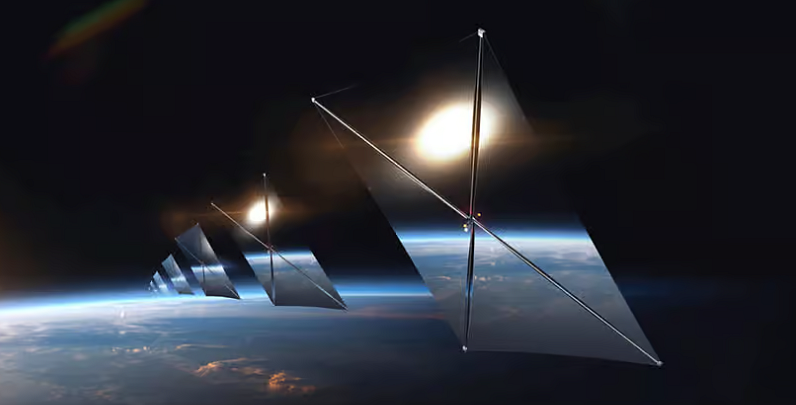Turning night into day is no longer just the domain of massive meteors; it could soon be as simple as launching an app and tapping a spot on the map. Reflect Orbital, a California-based startup, plans to sell sunlight and energy after dark.
Reflect Orbital 'Sunlight After Dark'
A new startup, Reflect Orbital, has captured attention online with its plan to sell sunlight, even after sunset. The company is developing space mirrors designed to reflect sunlight onto solar panels during nighttime hours, aiming to boost the efficiency of solar farms. Interestingly, their website also offers individuals the chance to reserve a personal spot of light.
While the first satellite is still under development, Reflect Orbital successfully conducted an experiment using a large mirror attached to a hot-air balloon. The company expects to deliver sunlight after dark by the fourth quarter of next year. They’re achieving this by sending a large mirror into space, mounted on a satellite, which can be positioned to reflect sunlight onto a specific location on Earth.
The service will be available for a brief period of four minutes, illuminating an area with a diameter of about three miles.
The startup isn’t entirely new; its founder and CEO, Ben Nowack, unveiled it back in April during the International Conference on Energy from Space. "We want to make it as easy as possible — like, log into a website, tell us your GPS coordinates and we get you some sunlight after dark," he said at the time.
In a video shared by Nowack on X, he demonstrates how this technology could function in real life. He uses an app to select a location on a map, and as soon as he confirms it, the area where he’s standing lights up. The camera then pans upward, revealing a light source shining down from above.
Nowack himself later clarified in a tweet that the video was just a "simple demonstration," acknowledging that the company still has "lots of work ahead."
While the video seemed questionable, the demo succeeded in capturing attention. Co-founder and CTO of Reflect Orbital, Tristan Semmelhack, posted on X that the company already has "30k applications for a spot of light and climbing every second," noting that they "10x yesterday's count in just a day."
This concept raises many questions. While Nowack addresses some of those concerns in a video, what the company has clearly demonstrated so far is its ability to capture significant online attention.





























